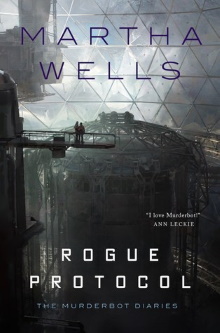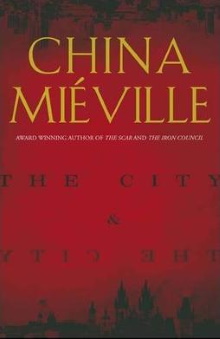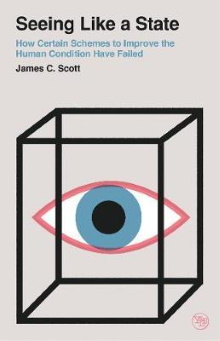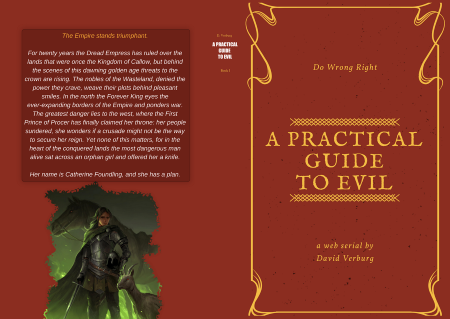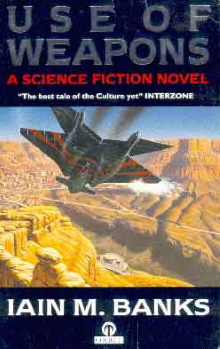This is the third novella of the series and by now I know what to expect. It largely follows the same formula in having Murderbot unexpectedly run into a group of humans who are hopeless at protecting themselves and ends up saving them. A welcome twist is that most of the opposition here comes in the form of implacably hostile enemy combat bots, which ramps up the threat level to Murderbot considerably. This is still a very simple and straightforward young adult book. It amounts to little more than introducing all of the new characters and then throwing Murderbot right into the action. It’s a rollicking good read, being fast-paced and punctuated by Murderbot’s particular sense of humor, but it’s nothing very sophisticated.
Continue reading Rogue ProtocolCategory Archives: Books
The City and the City
The first novel by China Miéville that I read was Embassytown which I enjoyed but found that it wasn’t all that it was hyped up to be. I did love the book’s premise though and, if anything, that of this book is even more far out. The City and the City is first and foremost a police procedural but I’d say it counts as science-fiction as well as the entire book is really about its unique setting itself. In the end, I feel that Miéville still doesn’t fully justify how the city could possibly work as he describes it but damn if he hasn’t gone most of the way and thought up all kinds of possibilities that I’d never even imagined in fleshing out the physical reality of his city.
Continue reading The City and the CityArtificial Condition
Last year, I mentioned how the popular Murderbot Diaries series seems to make for a fairly entertaining read but it would be too expensive to buy each novella one by one. Then I realized that the series is available for reading on Kindle Unlimited which is cheap to get so now I can finally get the whole story. This is the second of a total of four parts that I believe should round out what amounts to the first book if it were published in a more traditional format.
Continue reading Artificial ConditionSeeing Like a State
I found the last non-fiction book I read to be so engaging and rewarding that I think I might make more of a habit of it, even though I already read so much online and from my ongoing subscription to The Economist. This particular book caught my attention from an online discussion of books that most revolutionized their respective fields. That’s a rather bold claim that I’m not sure this book is able to satisfy. But its topic of trying to address the question of why so many large-scale interventions to reengineer human society fail is one that intensely interests me. This is a rather heavy and substantial book so I took my time getting through it. In the end, I found that it marshals such numerous examples and case studies that its arguments are undeniable. Still it also seems to me that so many those interventions failed because the planners were dumb, not that there is some deep, systematic reason for the failures.
Continue reading Seeing Like a StateA Practical Guide to Evil
I’d written about this web serial a couple of times previously but it seemed only right to give this a proper post of its own now that it’s officially over. Author ErraticErrata (David Verburg) originally intended to complete the series by the sixth book but as with so many other fantasy series underestimated how much more work needed to be done and so had to add on a seventh book. Still it is well and truly done, even if the last volume feels a bit rushed and is rife with typos and unfinished sentences, and the author has embarked on a new writing project. I intend this post to cover the series as a whole, focusing mostly on the last two books, and there will be spoilers for the first few books at least.
Continue reading A Practical Guide to EvilSea of Tranquility
Here’s a mainstream novel with speculative fiction elements rather than a science-fiction novel for a change. It’s the newest book by Emily St. John Mandel who was already a bestselling writer but received a massive boost in popularity recently for obvious reasons as her 2014 novel was set during a pandemic. I chose to read this one first as I was more intrigued by its multiple timelines and thought it would appeal to my science-fiction preferences more. In the end I found this to be an exceedingly pleasant book to read but most of all, it reminds me of the essential differences between mainstream literature and science-fiction. The book is full of time travel but as an author Mandel has no interest in the concept of time travelling at all. She uses it as a narrative device to offer some humanistic insights that are admittedly interesting but also reinforce the universal and unchanging nature of humanity even as time passes and science advances.
Continue reading Sea of TranquilityUse of Weapons
This is the third book of the Culture series and once again Iain M. Banks surprises me with how different it is from the previous two books. The first book showed the Culture from the perspective of its enemies. The second provided a look at a typical citizen of the Culture who is asked to help treat with another civilization. This one is again a story from the perspective of someone who is not born of the Culture and works for them as a sort of mercenary as part of their Special Circumstances organization. While there is a wider plot, the novel is largely a deep dive into the psyche of its protagonist. Personally while I commend the ambition and sophistication of this approach, I can’t say that I liked this novel terribly much as I don’t find examining the tortured minds of ex-soldiers that appealing and I question why the Culture needs to employ such people for their needs.
Continue reading Use of Weapons